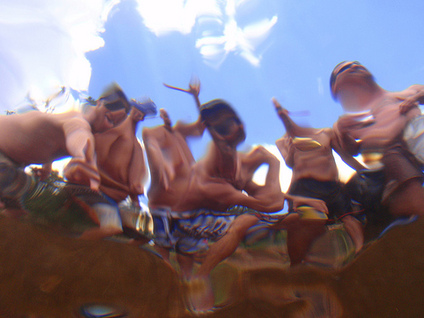Your social group is critical to your happiness
Tribes, groups, teams … groups are how we function throughout much of our lives. How big does your group need to be for ultimate happiness?
There are a few things to consider. First, you have strong ties and weak ties within your social groups, and this fact is exacerbated greatly by the surging popularity of social media. Different experts argue that certain types of ties are more important than others, but no one knows the definitive answer—like most things happiness, you probably have to experiment to find the best mix for you.
That said, British anthropologist and evolutionary psychologist Robin Dunbar studied in animals the relationship between brain size and the number of stable (“strong”) relationships that a species had in their social groups, then extrapolated what the number would be for humans. “Dunbar’s Number” is somewhere between 100 to 230 when you account for margin of error, but he suggests that 150 people is the social group size limit for humans.
Dunbar’s research, though, is limited to the strong-tie groups that know each other: where everyone knows everyone and people are in physical proximity. But physical proximity is becoming less and less important in the technologically-advanced world. It may be that your strong-tie high school group of 150 transitioned to your college group of 150 to your professional group of 150 … but with social media, you keep more weak ties, and make more new ones, than ever before. In that case, the old “model” of the 150-person survival group may be evolving.
What about the diverse groups that make up your life—your co-workers, your friends, your family, your college friends, your high school friends, the people you see at the shops you regularly visit—that don’t necessarily interact?
Jacob Morgan postulates that it is these ties, the weak ties—relationships that do not require that everyone knows everyone in the group, and are not based on physical proximity—that are the important ones.
Without a tribe near us, though, we feel alienated, isolated, and stressed. Group connection is critical to happiness, but the shift may be that there are more, smaller groups filling that essential human need as opposed to the larger social groups of the past.

